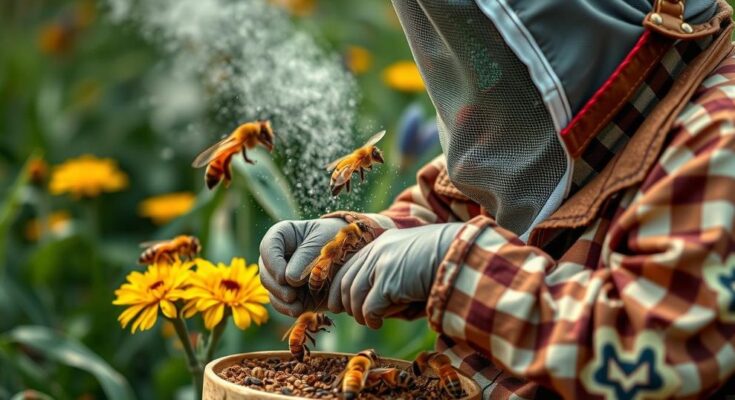Beekeeping is being promoted in Kenya as a sustainable alternative to traditional livelihoods affected by climate change. This practice aids communities in adapting to unpredictable weather and helps them generate income while conserving local biodiversity.
The U.N. Environment Program has identified that communities in arid and semi-arid regions are particularly vulnerable to climate change impacts, including extreme droughts and unpredictable flooding. In response, conservation specialists in Kenya are promoting beekeeping as a sustainable alternative livelihood. This initiative not only provides an income source but also encourages local communities to engage in conservation practices that enhance the resilience of their ecosystems. By cultivating beekeeping, these communities can adapt to the changing climate while contributing to biodiversity and ecological stability.
Climate change poses a significant threat to traditional livelihoods in dryland regions, particularly in Kenya, where farmers and pastoralists face challenges due to severe weather fluctuations. The U.N. Environment Program has recognized these challenges, prompting experts to explore sustainable solutions that can empower affected communities. Beekeeping emerges as a viable alternative, enabling communities to harness natural resources responsibly while fostering economic stability and environmental conservation.
In conclusion, beekeeping serves as a vital adaptation strategy for communities in Kenya affected by climate change. By providing a sustainable livelihood and encouraging biodiversity, this practice helps build resilience against the adverse effects of extreme weather. It stands as a testament to how innovative solutions can empower vulnerable populations and promote environmental health simultaneously.
Original Source: www.voaafrica.com




